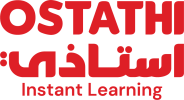GCSE, IB, or AP? A Parent’s Guide to Choosing the Right High School Curriculum in Jordan
Choosing a high school curriculum is one of the most important decisions a family can make. In Jordan, the options beyond the national Tawjihi program—primarily the British (IGCSE/A-Level), the International Baccalaureate (IB), and the American (AP)—can seem confusing. Each has a different philosophy, structure, and path to university. What is the real difference between them, and which one is right for your child?
As Jordan's leading platform for tutors across all major curricula, we at Ostathi have helped hundreds of students navigate this choice. This guide will break down the GCSE/A-Level, IB Diploma, and AP programs to help you make an informed decision for your family’s future.
The British System: IGCSE & A-Levels – The Path of Specialization
Stage 1: IGCSE (International General Certificate of Secondary Education)
- What it is: A two-year program, typically for grades 9 and 10. Students usually take 7-10 subjects, covering a broad base of knowledge.
- Philosophy: Builds a strong foundation and prepares students for the next, more focused stage.
- Best for: Students who benefit from a structured curriculum and clear, exam-based assessments.
Stage 2: A-Levels (Advanced Levels)
- What it is: After completing their IGCSEs, students choose only 3-4 subjects to study in-depth for two years (grades 11 and 12).
- Philosophy: Specialization. A student who wants to be an engineer will focus almost exclusively on subjects like Math, Physics, and Chemistry.
- Best for: Students who have a clear idea of what they want to study at university and prefer to focus deeply on their strongest subjects.
The International Baccalaureate (IB) Diploma – The Path of Holistic Learning
- What it is: Students must study six subjects: three at a Higher Level (HL) and three at a Standard Level (SL). They must choose one subject from each of the six groups, including languages, sciences, mathematics, and arts.
- Philosophy: Holistic and well-rounded education. The IB system believes in developing students who are knowledgeable across a wide range of disciplines.
- The Core Components: In addition to their six subjects, all IB students must complete three core requirements:
- Theory of Knowledge (TOK): A course on critical thinking.
- Extended Essay (EE): A 4,000-word independent research paper.
- Creativity, Activity, Service (CAS): A range of extracurricular projects.
- Best for: Students who are strong all-rounders, enjoy a wide range of subjects, and are self-motivated, independent learners who thrive on research and critical thinking.
The American System: High School Diploma & APs – The Path of Flexibility
The American system offers the most flexibility, with a broad-based education culminating in a High School Diploma. Advanced Placement (AP) courses are a key part of this system for high-achieving students.
- What it is: Advanced Placement (AP) courses are university-level courses that a student can take during high school. At the end of the course, they take a standardized AP exam.
- Philosophy: Flexibility and early university credit. Students can choose to take as many or as few APs as they want, in any subject they choose. A good score on an AP exam can often earn a student university credit, allowing them to skip introductory courses in college.
- How it works: APs are taken alongside a student’s regular high school classes to make their university application more competitive. They are not a standalone diploma like the IB.
- Best for: Students in the American High School Diploma system who want to challenge themselves, stand out in university applications (especially to the US, Canada, and Europe), and potentially save money by earning college credit early.
Quick Comparison Table: GCSE/A-Level vs. IB vs. AP
|
Feature |
GCSE / A-Levels |
IB Diploma Programme |
Advanced Placement (AP) |
|
Structure |
Specialized (3-4 subjects) |
Holistic (6 subjects + core) |
Flexible (course-by-course) |
|
Philosophy |
Depth of knowledge |
Breadth of knowledge & critical thinking |
University-level challenge & credit |
|
Best For |
The Specialist |
The All-Rounder |
The Ambitious & Flexible Learner |
|
Assessment |
Final exams |
Exams + internal assessments + essays |
Single final exam per course |
|
Location |
Global (strong in the UK & Europe) |
Global |
Global (strong in the US & Canada) |
Which Curriculum is Right for Your Child?
There is no single "best" curriculum. The right choice depends entirely on your child's personality, strengths, and future ambitions.
- Choose A-Levels if: Your child knows they want to be a doctor, engineer, or designer and wants to focus only on the subjects that matter for that path.
- Choose the IB Diploma if: Your child is a strong, curious student who excels in multiple areas (humanities, sciences, arts) and enjoys research and writing.
- Choose the AP Program if: Your child is in an American-style school and wants to show universities they can handle rigorous, college-level work in their strongest subjects.
Find the Expert Support You Need on Ostathi
Navigating these demanding curricula can be challenging. Whether your child needs help mastering A-Level Physics, structuring their IB Extended Essay, or preparing for an AP Calculus exam, Ostathi Jordan is here to help. We have a network of Jordan's top tutors who are specialists in the IGCSE, A-Level, IB, and AP programs. They don't just teach the subject; they understand the system, the exam techniques, and what it takes to succeed.






